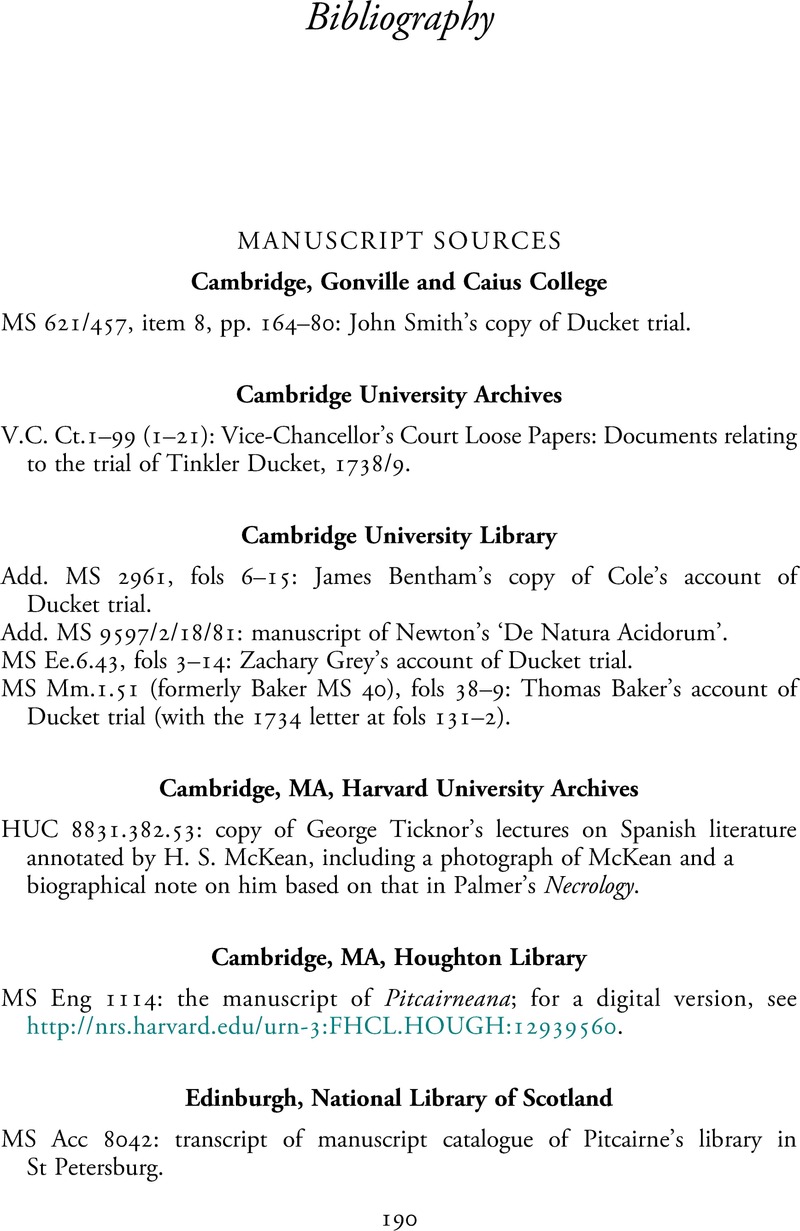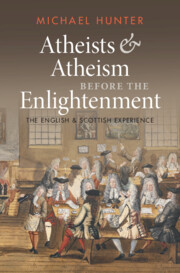Book contents
- Atheists and Atheism before the Enlightenment
- Atheists and Atheism before the Enlightenment
- Copyright page
- Contents
- Acknowledgements
- Chapter 1 Introduction
- Chapter 2 The Problem of ‘Atheism’ in Early Modern England
- Chapter 3 Atheism among the Godly
- Chapter 4 ‘This degenerate Age … so miserably over-run with Scepticism and Infidelity’
- Chapter 5 ‘Aikenhead the Atheist’
- Chapter 6 An Atheist Text by Archibald Pitcairne
- Chapter 7 The Text of Pitcairneana
- Chapter 8 The Trial of Tinkler Ducket
- Chapter 9 Conclusion
- Bibliography
- Index
- References
Bibliography
Published online by Cambridge University Press: 06 July 2023
- Atheists and Atheism before the Enlightenment
- Atheists and Atheism before the Enlightenment
- Copyright page
- Contents
- Acknowledgements
- Chapter 1 Introduction
- Chapter 2 The Problem of ‘Atheism’ in Early Modern England
- Chapter 3 Atheism among the Godly
- Chapter 4 ‘This degenerate Age … so miserably over-run with Scepticism and Infidelity’
- Chapter 5 ‘Aikenhead the Atheist’
- Chapter 6 An Atheist Text by Archibald Pitcairne
- Chapter 7 The Text of Pitcairneana
- Chapter 8 The Trial of Tinkler Ducket
- Chapter 9 Conclusion
- Bibliography
- Index
- References
Summary

- Type
- Chapter
- Information
- Atheists and Atheism before the EnlightenmentThe English and Scottish Experience, pp. 190 - 217Publisher: Cambridge University PressPrint publication year: 2023



